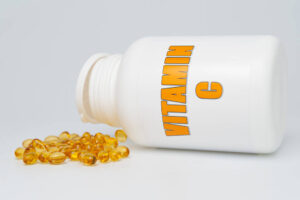Boosting Your Immune System with Supplements: A Comprehensive Guide
Recently, the importance of a robust immune system has taken center stage, as individuals seek ways to defend against infectious diseases and maintain overall well-being. While a balanced diet and a healthy lifestyle form the foundation of a strong immune system, many people turn to immune system supplements to provide an extra layer of protection. These supplements encompass a wide range of vitamins, minerals, herbs, and other bioactive compounds that aim to bolster the body’s natural defense mechanisms.

In this article, we will delve into the world of immune system supplements, exploring their potential benefits, safety considerations, and effectiveness in supporting immune health.
Understanding the Immune System
The immune system plays a pivotal role in protecting the body from harmful pathogens, such as viruses, bacteria, and fungi. It comprises a complex network of cells, tissues, and organs working together to recognize and eliminate foreign invaders while maintaining tolerance towards the body’s cells. The immune response can be broadly categorized into innate and adaptive immunity.
Innate immunity acts as the first line of defense, providing immediate protection upon encountering pathogens. Meanwhile, adaptive immunity is a more specialized and tailored response, developed over time after exposure to specific pathogens. A well-functioning immune system depends on a delicate balance and proper communication between these two arms.
Popular Immune System Supplements
- Vitamin C: Perhaps one of the most well-known immune boosters, vitamin C is an essential antioxidant that supports the production and function of various immune cells. Research suggests that vitamin C may reduce the duration and severity of colds and flu.
- Vitamin D: Known as the “sunshine vitamin,” vitamin D plays a crucial role in immune function, particularly in activating and modulating immune cells. Adequate vitamin D levels have been associated with a lower risk of respiratory infections.
- Zinc: Zinc is a trace mineral essential for immune system function. It helps develop and activate immune cells and can contribute to a more robust defense against infections.
- Probiotics: These beneficial bacteria support gut health, closely linked to immune function. Probiotics may help balance the gut microbiota, promoting a healthy immune response.
- Echinacea: A popular herb used for centuries to support the immune system, echinacea is believed to stimulate immune cells and reduce the severity and duration of colds.
- Elderberry: Rich in antioxidants and vitamins, elderberry has gained popularity as a natural remedy for flu-like symptoms due to its potential to reduce inflammation and boost immune activity.
Effectiveness and Research
While the concept of immune system supplements is appealing, it is essential to approach their usage with caution. Many supplements have been studied in laboratory settings or small-scale clinical trials, showing promising results in enhancing immune responses. However, not all supplements have robust evidence supporting their efficacy in preventing or treating infections.
Vitamin C, for example, has been extensively researched, and while it may not necessarily prevent colds, studies suggest that regular supplementation might shorten the duration and reduce the severity of cold symptoms in some individuals.

Vitamin D has also been the subject of numerous studies, with evidence indicating its role in reducing the risk of respiratory infections, especially in individuals with vitamin D deficiency. Nonetheless, more research is needed to establish precise dosage recommendations and their effectiveness in preventing infections.
Zinc has shown promise in supporting immune function, especially when taken within 24 hours of symptom onset. It appears to have a more substantial effect on reducing the duration of colds in adults but not necessarily preventing them.
Probiotics have been associated with a positive impact on gut health and immune function. Some studies suggest that certain strains of probiotics may help reduce the risk of upper respiratory tract infections.
Learn more at Wiki as well.
